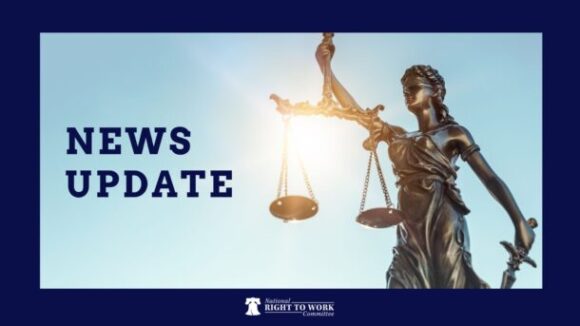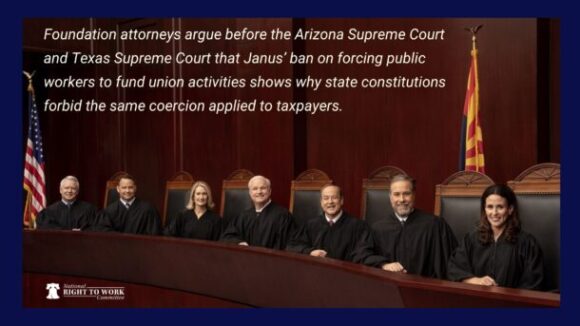DC-Area Transdev Driver Takes Case Regarding Union-Instigated Assault to Federal Appeals Court
Biden Labor Board claims ATU union did not violate law even after Transdev worker experienced slap and termination attempt from union officials
This week, the National Right to Work Foundation attorneys are heading to court — the Supreme Court — to protect people like Gary Davenport and a group of 4000 teachers from Washington State who do not want to be forced to join a union or pay union dues and fees as a condition of employment.
At issue is whether the teacher union bosses must allow independent-minded teachers to say “yes” before union fees, collected as a condition of employment, can be used for political causes or whether teachers must specifically object to having a portion of the fees spent for that purpose. Independent observers say a ruling in the union’s favor could open the door to union officials’ efforts elsewhere to roll back limits on the use of dues.
The case and another being heard along with it are Gary Davenport v. Washington Education Association, 05-1589, and Washington v. Washington Education Association, 05-1657. Davenport said he is proud to be the lead plaintiff on the case because he wants to give other teachers a voice and a choice about how their money is spent.
“This has been going on and will continue to go on to those teachers who don’t have a voice,” said Davenport, 32. “They really don’t have an opportunity to defend themselves or protect their own money. They’ve kind of been bullied by the unions.”
Davenport and the four other named plaintiffs are receiving free legal aid from the National Right to Work Legal Defense Foundation (www.nrtw.org).

Biden Labor Board claims ATU union did not violate law even after Transdev worker experienced slap and termination attempt from union officials
NY Starbucks workers are challenging NLRB that refuses to let them hold decertification votes to remove unwanted SBWU union

Foundation attorneys argue before the Arizona Supreme Court and Texas Supreme Court that Janus’ ban on forcing public workers to fund union activities shows why state constitutions forbid the same coercion applied to taxpayers.